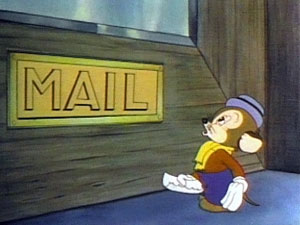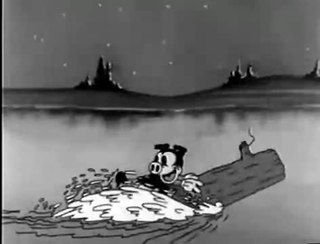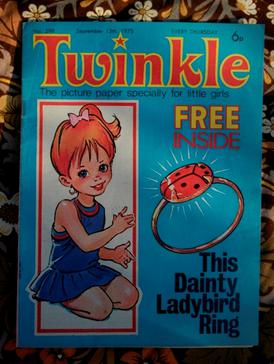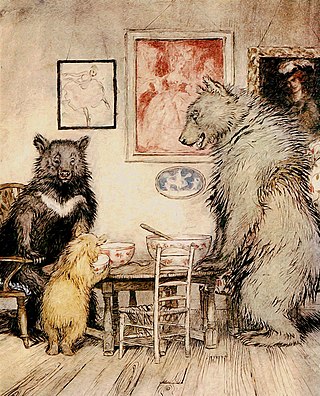
Bugs Bunny is a fictional character created in the late 1930s at Warner Bros. Cartoons and voiced originally by Mel Blanc. Bugs is best known for his featured roles in the Looney Tunes and Merrie Melodies series of animated short films, produced by Warner Bros. Earlier iterations of the character first appeared in Ben Hardaway's Porky's Hare Hunt (1938) and subsequent shorts before Bugs's definitive characterization debuted in Tex Avery's A Wild Hare (1940). Bob Givens, Chuck Jones, and Robert McKimson are credited for defining Bugs's design.

Sylvester J. Pussycat Sr. is a fictional character, an anthropomorphic cat in the Looney Tunes and Merrie Melodies series of cartoons. Most of his appearances have him often chasing Tweety Bird, Speedy Gonzales, or Hippety Hopper. He appeared in 103 cartoons in the golden age of American animation, lagging only behind superstars Bugs Bunny, Porky Pig, and Daffy Duck. Three of his cartoons won Academy Awards, the most for any starring a Looney Tunes character: they are Tweetie Pie, Speedy Gonzales, and Birds Anonymous.

Isadore "Friz" Freleng, credited as I. Freleng early in his career, was an American animator, cartoonist, director, producer, and composer known for his work at Warner Bros. Cartoons on the Looney Tunes and Merrie Melodies series of cartoons. In total he created more than 300 cartoons.

Sniffles is an animated cartoon and comic-book mouse character in the Warner Bros. Merrie Melodies and Looney Tunes series of cartoons and comics.

The Censored Eleven is a group of Looney Tunes and Merrie Melodies cartoons originally produced and released by Warner Bros. that have been withheld from syndication in the United States by United Artists (UA) since 1968. UA owned the distribution rights to the Associated Artists Productions library at that time, and decided to pull these 11 cartoons from broadcast because the use of ethnic stereotypes in the cartoons, specifically African stereotypes, was deemed too offensive for contemporary audiences. The ban has been continued by UA and the successive owners of the pre-August 1948 Looney Tunes/Merrie Melodies. Since 1968, these shorts have not been officially broadcast on television and have only been exhibited theatrically by Warner Bros. once since their withdrawal. They have turned up, however, on low-cost VHS and DVD collections.

The Three Bears are animated cartoon characters in the Warner Bros. Looney Tunes and Merrie Melodies series of cartoons. The dysfunctional family consists of Franklin Bear, Lindsey Bear, and Little Warren Bear. The characters were featured in five theatrical cartoons released between 1944 and 1951.

Hillbilly Hare is a 1950 Warner Bros. Merrie Melodies cartoon directed by Robert McKimson. The short was released on August 12, 1950 and stars Bugs Bunny.
Granny is a term and nickname for a grandmother, a female grandparent, and may refer to:

Goldilocks and the Jivin' Bears is a 1944 Warner Bros. Merrie Melodies cartoon directed by Friz Freleng and produced by Eddie Selzer. The short was released on September 2, 1944.

Bugs Bunny and the Three Bears is a 1944 Merrie Melodies cartoon short directed by Chuck Jones and written by Tedd Pierce. The short was released on February 26, 1944, and features Bugs Bunny. This short marks the first appearance of Jones' dysfunctional version of The Three Bears, and is a parody of the old fairy tale, Goldilocks and The Three Bears.

Twinkle, "the picture paper specially for little girls," was a popular British comics magazine, published by D. C. Thomson & Co. Ltd from 27 January 1968 to 1999. It was aimed at young girls and came out weekly, supplemented each year with a Summer Special and a hardcover Annual.
Looney or loonie may refer to:

The Goldilocks principle is named by analogy to the children's story "The Three Bears", in which a young girl named Goldilocks tastes three different bowls of porridge and finds she prefers porridge that is neither too hot nor too cold but has just the right temperature. The concept of "just the right amount" is easily understood and applied to a wide range of disciplines, including developmental psychology, biology, astronomy, economics and engineering.
Slowpoke or Slow Poke may refer to:
Meep or MEEP may refer to:

Now Hare This is a 1958 Warner Bros. Looney Tunes cartoon directed by Robert McKimson and written by Tedd Pierce. The short was released on May 31, 1958, and stars Bugs Bunny.

The Looney Tunes Show is an American animated sitcom produced by Warner Bros. Animation, and aired on Cartoon Network for two seasons from May 3, 2011, to November 2, 2013. The series differed from others featuring characters from the Looney Tunes, by focusing on stories conformed around a sitcom format involving the characters of Bugs Bunny and Daffy Duck, as they live a surburban life together within a neighbourhood of fellow cartoon neighbours, dealing with various issues in their own way. Both the characters from the Looney Tunes, as well as the Merrie Melodies theatrical cartoon shorts, were given a 21st century update, with episodes also including a musical short; the first series also included computer-animated shorts involving new antics between Wile E. Coyote and the Road Runner.

The Bear's Tale is a 1940 Warner Bros. Merrie Melodies animated cartoon short, directed by Tex Avery. The short was released on April 13, 1940, and stars the Three Bears.

Looney Tunes Cartoons is an American animated television series developed by Peter Browngardt and produced by Warner Bros. Animation, based on the characters from Looney Tunes and Merrie Melodies. The series made its worldwide debut at the Annecy International Animation Film Festival on June 10, 2019, and premiered on HBO Max on May 27, 2020.














